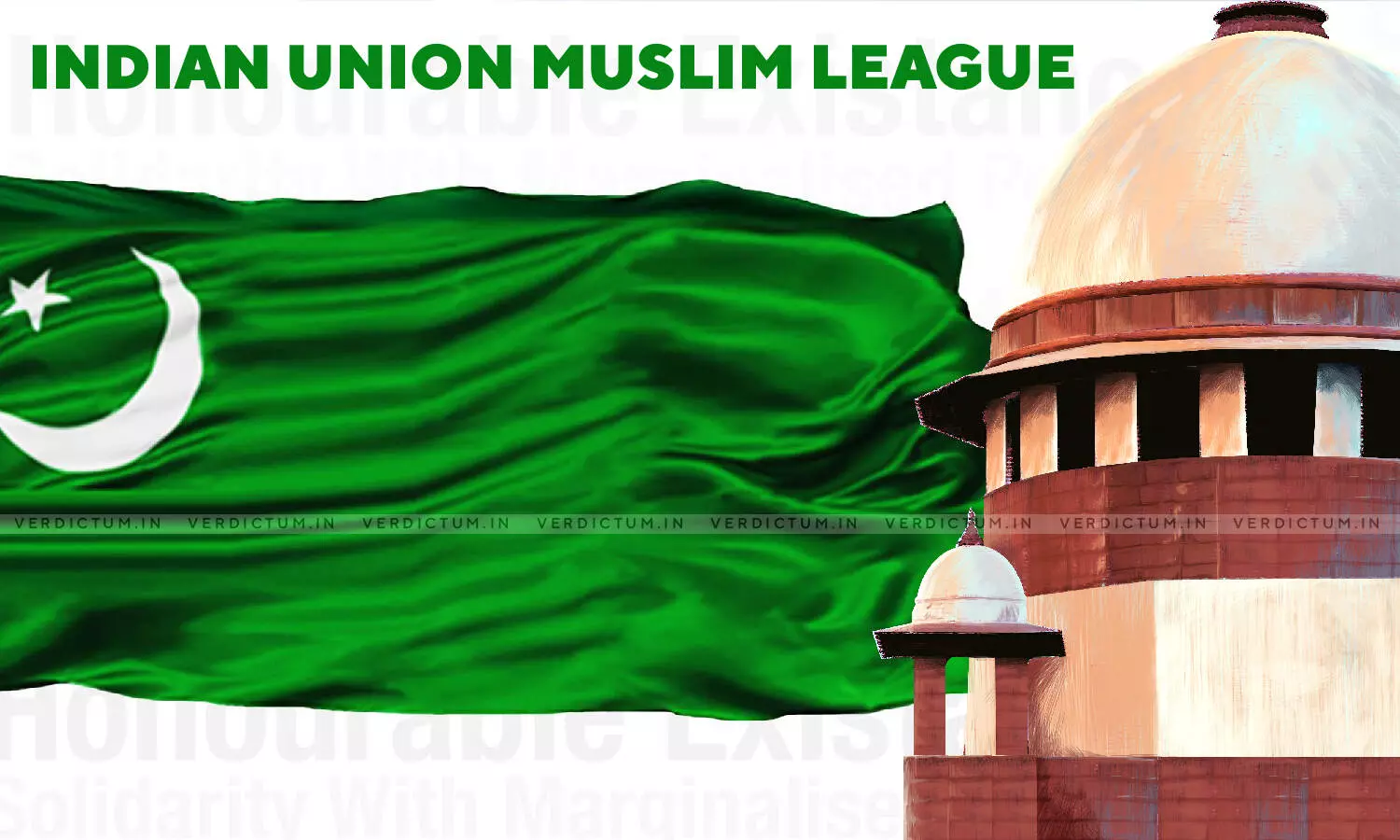
Religious Names & Symbols Of Political Parties: Muslim League Tells SC That 'Lotus' Symbol Of BJP Is Religious In Nature
 |
|The Indian Union Muslim League has moved an application before the Supreme Court seeking impleadment of the Bharatiya Janata Party to the proceedings before the Apex Court for having its symbol ‘Lotus’, which as per them, is ‘religious’ in nature.
This was told to a Bench comprising Justice MR Shah and Justice CT Ravikumar by Senior Advocate Dushyant Dave during the hearing of a writ petition seeking a ban on political parties which use names and symbols of religions.
Senior Advocate Dave, appearing for Indian Union Muslim League, said that he has filed an application before the Court seeking impleadment of the Bharatiya Janata Party to the proceedings as its symbol is also religious in nature.
“We have filed an application to include other political parties, including the Bharatiya Janata Party because its symbol is a "Kamal", which is a religious symbol,” he said.
Senior Advocate KK Venugopal, representing All India Majlis E Ittehadul Muslimeen (AIMIM), submitted before the Court that the petition must not be entertained by the Court as there is no fundamental right involved, and doubted its ‘maintainability’.
“There was a direction to implead all parties. He (the petitioner) has impleaded only two parties with Muslim names,” added Senior Advocate Venugopal. Only two parties i.e. AIMIM and Indian Union Muslim League, have been arrayed as respondent parties to the petition as per the latest details available on the official website of the Supreme Court.
He further pointed out before the Court that a similar petition is pending before the Delhi High.
Senior Advocate Gaurav Bhatia, appearing for the petitioner, opposed the submission that only two political parties with Muslim names have been added as parties to the proceedings. He said that the petitioner is only concerned with the implementation of the Representation of the People Act and the law laid down by the Supreme Court in Abhiram Singh v. C. D. Commachen that any appeal made on religious consideration will fall under ‘corrupt practice’.
The Supreme Court listed the proceedings after 4 weeks for further hearing and in the meantime, it directed that the details of the plea pending before the Delhi High Court may be placed on record in the present proceedings.
“Heard Shri KK Venugopal, learned Senior Counsel appearing for Respondent 3 who has stated that on similar issue, writ petition is pending before Delhi High Court. Let the petition, if any, pending before Delhi High Court be placed on record,” ordered the Court.
The Supreme Court had issued notice on the plea seeking a ban on political parties which use names and symbols of religions on 5 September.
A Bench comprising Justice MR Shah and Justice Krishna Murari had issued notice on the PIL filed by Syed Waseem Rizvi (Jitendra Narayan Singh Tyagi) seeking to enforce the mandate of Sections 29A, 123(3) and 123(3A) of the Representation of People Act, 1951 which prohibit luring of the voters on the ground of their religion.
Syed Waseem Rizvi has approached the Apex Court seeking directions to the Election Commission to cancel the symbol and name allotted to the political parties that are using religion in their name.
In response, the Election Commission (EC) had told the Supreme Court that the commission had taken a policy decision in the year 2005 whereby it had decided that political parties with religious names or symbols will not be registered. The Commission had stated that since then, it has not registered any political party having religious connotations in its party name.
The Election Commission had said in its counter affidavit filed before the Supreme Court that the existing political parties which are having religious connotation have become "legacy names as they have been in existence for decades" and that "Whether the names of these political parties may or- may not be disturbed is, accordingly, left open to the wisdom of this Hon'ble Court".
Further, the EC had said that under the Representation of People Act, 1951, there is no express provision which bars associations with religious connotations to register themselves as political parties and that as per Section 29A of the Act, "political parties are required to abide by the principle of 'secularism'".
Opposing the plea, the All India Majlis Ittehadul Muslimeen (AIMIM) in its Counter Affidavit had argued that if political parties with religious names are to be debarred, even candidates with names like Ram, Shiva or Vishnu would be disqualified. "...to say that the name alone is an appeal in the name of religion is analogous to the argument that any candidate, with a religious name, is asking for votes from that community and must hence be disbarred, therefore any candidate with the name Ram, Shiva or Vishnu would be disqualified on the basis of the same reasoning", AIMIM says in its affidavit.
AIMIM had further stated that the mere mention of the word, ‘Muslimeen’ in its party name, cannot amount to any specific appeal to the electorate on the ground of religion. AIMIM had also said that the Petitioner-Syed Waseem Rizvi has approached the Court with a politically motivated petition.
Cause Title- Syed Waseem Rizwi v. Election Commission of India & Anr